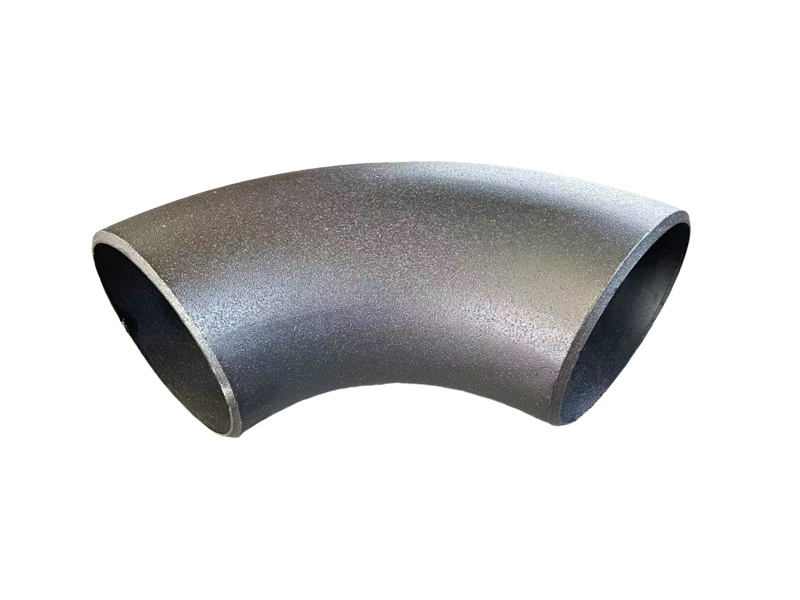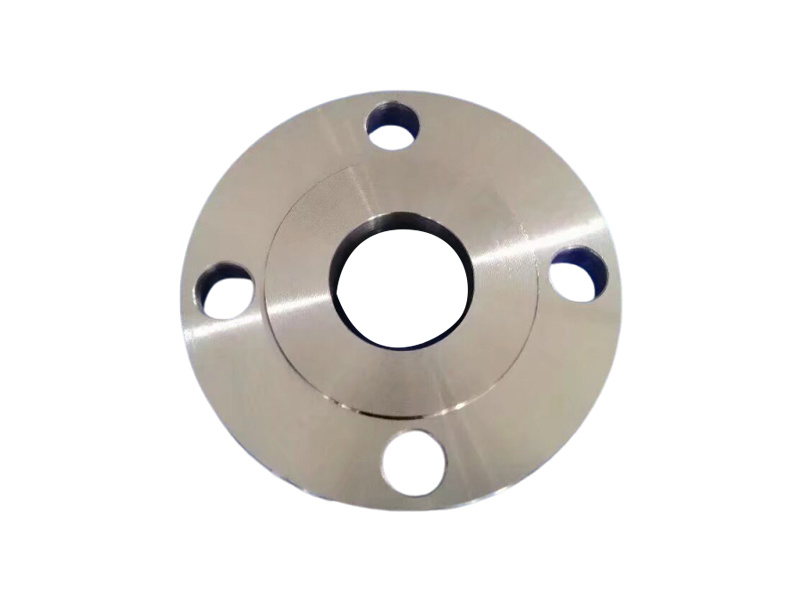-
Forged Steel Elbows: A Key Component for Stronger Pipe Systems
Date:
11 Aug,2025
Forged Steel Elbows: A Key Component for Stronger Pipe Systems Table of Contents Introduction to Forged Steel Elbows What Are Forged Steel Elbows? The Manufacturing Process of Forged Steel Elbows Applications of Forged Steel Elbows Advantages of Using Forged Steel Elbows Considerations for Selecting Forged Steel Elbows Maintenance and Care for Forged Steel Elbows C
Forged Steel Elbows: A Key Component for Stronger Pipe Systems
Table of Contents
- Introduction to Forged Steel Elbows
- What Are Forged Steel Elbows?
- The Manufacturing Process of Forged Steel Elbows
- Applications of Forged Steel Elbows
- Advantages of Using Forged Steel Elbows
- Considerations for Selecting Forged Steel Elbows
- Maintenance and Care for Forged Steel Elbows
- Conclusion
- Frequently Asked Questions
Introduction to Forged Steel Elbows
In the construction and piping industries, the importance of robust and reliable components cannot be overstated. One such essential element is the forged steel elbow. These fittings play a critical role in ensuring the integrity and efficiency of pipe systems, making them a focal point of discussion among engineers and designers alike. This article delves into the world of forged steel elbows, exploring their advantages, applications, and how they contribute to stronger pipe systems.
What Are Forged Steel Elbows?
Forged steel elbows are pipe fittings designed to connect two pipes while allowing for a directional change in flow. Typically manufactured from high-quality steel, these elbows are processed through a forging method, which involves shaping the metal using localized compressive forces. This process enhances the material's strength and durability, making forged steel elbows a preferred choice in various applications.
Forged elbows are available in various angles, including 90-degree, 45-degree, and 180-degree turns, allowing for flexible installations in different piping systems. They can accommodate various pipe sizes and types, making them versatile components in any construction project.
The Manufacturing Process of Forged Steel Elbows
The manufacturing of forged steel elbows involves several critical steps that contribute to their strength and reliability:
1. Material Selection
The process begins with selecting high-quality steel alloys that provide the necessary properties for the finished product. Common materials include carbon steel, alloy steel, and stainless steel, each chosen for its unique strengths and characteristics.
2. Heating
The chosen steel is then heated to a high temperature to make it malleable. This heating process is essential, as it allows the material to be shaped without cracking or breaking.
3. Forging
Once the steel reaches the desired temperature, it is forged into the elbow shape using hydraulic presses or hammers. This method ensures that the grain structure of the steel is aligned, enhancing its overall strength.
4. Machining
After forging, the elbows undergo machining to achieve precise dimensions and surface finishes. This step ensures that the fittings will fit seamlessly into the piping system.
5. Testing
Quality control is paramount in the manufacturing process. Forged steel elbows are subjected to various tests, including pressure tests, to ensure they meet industry standards and specifications.
Applications of Forged Steel Elbows
Forged steel elbows are utilized in a wide range of applications across various industries, including:
1. Oil and Gas Industry
In the oil and gas sector, forged steel elbows are crucial for transporting fluids under high pressure. Their ability to withstand extreme conditions makes them ideal for pipelines that carry crude oil and natural gas.
2. Chemical Processing
The chemical industry often employs forged steel elbows in their piping systems to handle corrosive substances. The strength and durability of these fittings ensure safe and efficient transport.
3. Water and Wastewater Treatment
In water treatment facilities, forged steel elbows facilitate the movement of water and waste materials. Their reliability is vital for maintaining operational efficiency.
4. Construction and Infrastructure
Forged steel elbows are also used in various construction projects, such as HVAC systems, plumbing applications, and fire protection systems. Their versatility allows for flexible designs and efficient installations.
Advantages of Using Forged Steel Elbows
The adoption of forged steel elbows in piping systems offers numerous advantages:
1. Enhanced Strength and Durability
The forging process increases the mechanical properties of the steel, resulting in components that can withstand high pressures and extreme conditions.
2. Resistance to Corrosion
Many forged steel elbows are treated with protective coatings or made from corrosion-resistant alloys, making them suitable for various environments, including those with corrosive substances.
3. Cost-Effectiveness
While the initial investment may be higher than other materials, the longevity and low maintenance needs of forged steel elbows often result in lower overall costs.
4. Versatility in Design
Available in various angles and sizes, forged steel elbows can be easily integrated into different piping systems, accommodating specific project requirements.
5. High Flow Capacity
The smooth surface and optimized design of forged steel elbows minimize turbulence and pressure drop, ensuring efficient fluid transport.
Considerations for Selecting Forged Steel Elbows
When purchasing forged steel elbows for your projects, several factors should be considered to ensure you choose the right components:
1. Material Compatibility
Select materials that are compatible with the fluids being transported and the environmental conditions they will face. Consider factors such as temperature, pressure, and corrosivity.
2. Size and Angle
Ensure that the elbows you choose fit the diameter of your pipes and the required angles for your installation. Accurate measurements will prevent leaks and ensure optimal flow.
3. Industry Standards
Verify that the forged steel elbows meet relevant industry standards and certifications. Compliance ensures safety and reliability in your piping system.
4. Manufacturer Reputation
Opt for reputable manufacturers known for high-quality products. Research customer reviews and consider warranty options to ensure you are making a sound investment.
5. Cost vs. Quality
While budget constraints are essential, prioritize quality over the lowest price. Investing in high-quality forged steel elbows can reduce long-term maintenance costs and enhance system performance.
Maintenance and Care for Forged Steel Elbows
Proper maintenance is crucial to prolonging the life of forged steel elbows:
1. Regular Inspections
Conduct routine inspections for signs of wear, corrosion, or leakage. Early detection can prevent costly repairs and downtime.
2. Cleaning
Keep the fittings clean and free from debris. Regular cleaning can help prevent corrosion and maintain optimal flow.
3. Monitoring Pressure and Temperature
Monitor the pressure and temperature within the pipe system. Ensure that these parameters remain within the specified limits to prevent damage to the elbows.
4. Prompt Repairs
If any issues are detected, address them immediately. Timely repairs can prevent further damage and extend the life of the piping system.
Conclusion
Forged steel elbows are indispensable components in creating strong and reliable pipe systems across various industries. Their enhanced strength, durability, and versatility make them an optimal choice for transporting fluids efficiently and safely. By understanding their manufacturing process, applications, advantages, and maintenance needs, professionals can make informed decisions that contribute to the longevity and performance of their piping systems. Investing in quality forged steel elbows is a step towards ensuring the success and reliability of your projects.
Frequently Asked Questions
1. What is the difference between forged and cast steel elbows?
Forged steel elbows are created by shaping heated steel under pressure, resulting in a denser and stronger product. In contrast, cast steel elbows are made by pouring molten steel into molds, which may have weaker structural integrity.
2. Can forged steel elbows be used in high-temperature applications?
Yes, forged steel elbows are suitable for high-temperature applications, especially when made from heat-resistant alloys. However, always check specific temperature ratings for the material used.
3. How do I determine the correct size of forged steel elbows for my piping system?
Measure the diameter of your pipes and select elbows that match these dimensions. Also, consider the required angle for the directional change in your piping layout.
4. Are there any specific industry standards for forged steel elbows?
Yes, forged steel elbows should comply with various industry standards, including ASTM and ASME specifications, depending on their intended application.
5. What maintenance practices should I follow for forged steel elbows?
Regular inspections, cleaning, monitoring pressure and temperature, and timely repairs are essential for maintaining the integrity and longevity of forged steel elbows.Related News
12 Aug,2025
Understanding SS Concentric Reducers: Essential Components in Construction
SS concentric reducers are specialized pipe fittings designed to connect two different pipe sizes in a streamlined manner. They are made from stainless steel, which offers durability, corrosion resistance, and aesthetic appeal, making them suitable for various applications, including plumbing, HVAC, and industrial processes. These reducers allow for the smooth transition of fluids from a larger di
11 Aug,2025
Forged Steel Elbows: A Key Component for Stronger Pipe Systems
Forged Steel Elbows: A Key Component for Stronger Pipe Systems Table of Contents Introduction to Forged Steel Elbows What Are Forged Steel Elbows? The Manufacturing Process of Forged Steel Elbows Applications of Forged Steel Elbows Advantages of Using Forged Steel Elbows Considerations for Selecting Forged Steel Elbows Maintenance and Care for Forged Steel Elbows C
10 Aug,2025
Understanding BS4504 PN16 Weld Neck Flanges: A Comprehensive Guide for Professionals
When it comes to piping systems, selecting the right components is crucial for ensuring efficiency and reliability. Among these components, the BS4504 PN16 weld neck flange stands out due to its engineering design and versatility. This flange type is particularly favored in the construction and decorative materials sector, where it aids in creating secure and durable connections between pipes. A w
Contact information
Address: North Ring Industrial Zone, Mengcun County
Telephone: 86 0317- 6729218 86 0317-6727320
Fax: 0317-6727310
mobile phone: 86 13833761688whatsapp: 86-13780271039
Email: shengyuanflange@163.comLeave Message










